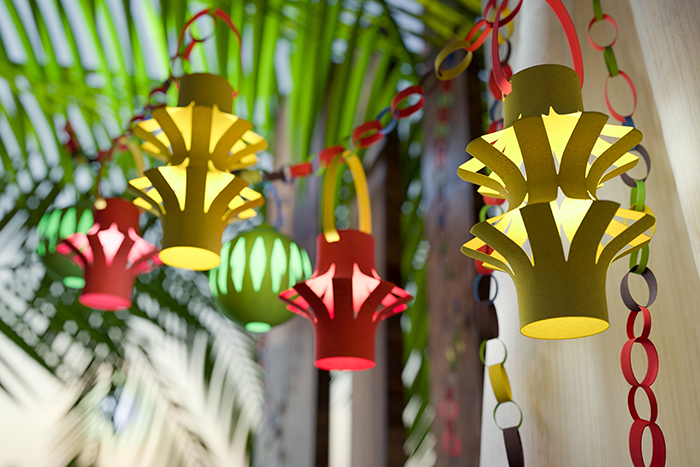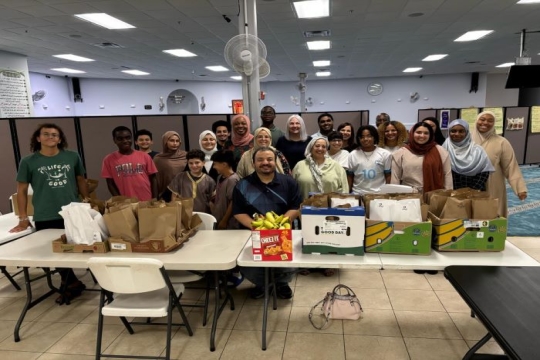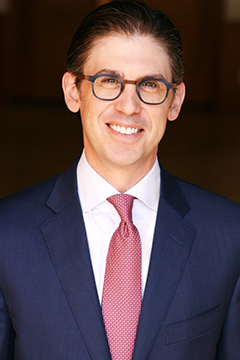
"Do not destroy My world, for if you do, there will be nobody after you to make it right again." - Midrash Kohelet Rabbah 7:13
Near the loading dock behind our temple kitchen sits a solitary trash bin. Westchester Reform Temple (WRT) is the largest Jewish congregation in Westchester County, serving over 1,000 households in and around our suburban village of Scarsdale, New York. We have only one trash bin because we only need the one, and even that rarely gets filled before collection time. It is flanked by seven bins for compostable waste and a few bins for recyclables.
Ten years ago, Ron Schulhof and Michelle Sterling, congregants who were serving as volunteers on our village's sustainability board, approached me with an intriguing proposal: make WRT the first local house of worship to begin a comprehensive composting and recycling program. We decided that WRT would go zero-waste.
Ron and Michelle understood that "green" was already an important byword for our congregation. WRT had already distinguished itself as the second LEED (Leadership in Energy and Environmental Design)-certified synagogue upon completion of a comprehensive construction and renovation project in 2009. Our synagogue's physical plant was designed to have a minimal negative impact on the environment and inspire other houses of worship to live their values through architecture and operations. Over the last 15 years, the number of LEED-certified synagogues has proliferated all over the United States.
For the last 10 years, our zero-waste initiative has transformed how WRT handles all food service and programming that would have drawn upon single-use (disposable) resources. In the process, our congregation has influenced several other institutions in our community and the North American Reform Movement.
The ravages of climate change have become so widespread and serious that even those who live in communities far from the coasts have begun to take notice. For several days this summer, the skies in our area turned orange and the air became choked with smoke from Canadian wildfires. Lahaina, Maui has become a smoldering ruin. As I write this, severe hurricanes are threatening southern California for the first time since the 1930s.
Perhaps these increasingly dire incidents around the globe have spurred you to think about reducing your own environmental impact and that of your local organizations. Perhaps you have taken note of the theme of Sukkot, which, perhaps paradoxically, celebrates nature's bounty while reminding us of the earth's fragility.
Sukkot features two mitzvot and blessings unique to this holiday: Al Netilat Lulav, "for waving the Lulav," is said when we pick up the four botanical species and wave them together. This highlights the theme of bounty associated with Sukkot. Leisheiv Ba-Sukkah, " to dwell in a Sukkah," is recited when we find our place inside of the fragile little hut that gives the holiday its name. This highlights Sukkot's theme of fragility.
We thank God for the bounty of the world (Al Netilat Lulav),but we also acknowledge that God has summoned us to observe the fragile world through the slats in the roof of a rickety shack (Leishev Ba-Sukkah).
Our temple's zero-waste initiative expresses these same values: appreciation for the beauty and abundance of the world and a recognition of our responsibility in safeguarding it.
Achieving zero-waste in your home, synagogue, and wider community may be easier than it sounds. I know it can sound daunting, but zero-waste simply means that you generate as little trash as possible, particularly when eating, drinking, catering, and hosting food-based celebrations. Everything is reused, recycled, or composted so nothing ends up in the trash. At WRT, all food scraps and compostable eating utensils are sent to a commercial compost facility to be composted and turned into soil.
There are three main components to setting up a successful zero-waste home or house of worship:
- Providing proper bins and signage at appropriate locations,
- Using reusable or compostable eating utensils, and
- Educating family members, clergy, lay leaders, facility staff, congregants, and guests.
May your hearts, homes, and community be places of environmental sustainability and beacons of God's blessing. Chag Sukkot Sameach!
If you would like to learn more, please visit our synagogue's website, wrtemple.org or contact us at office@wrtemple.org. We'd be happy to share information and best practices!
Related Posts

How URJ Congregations Spark Change and Innovation

Faith, Justice, and Israel: Being Proud

